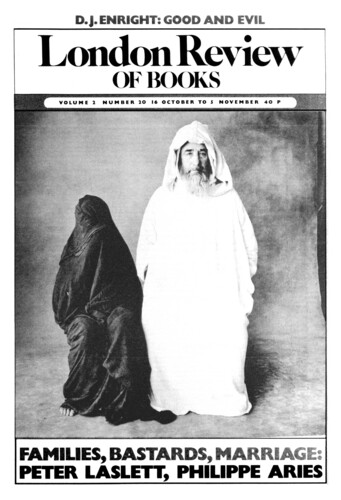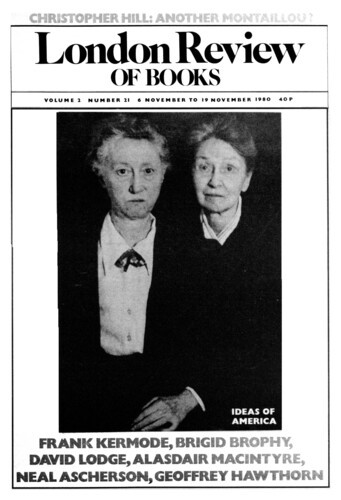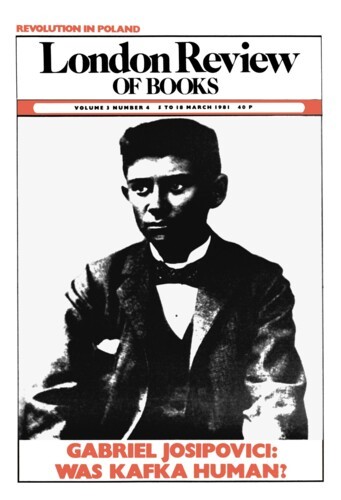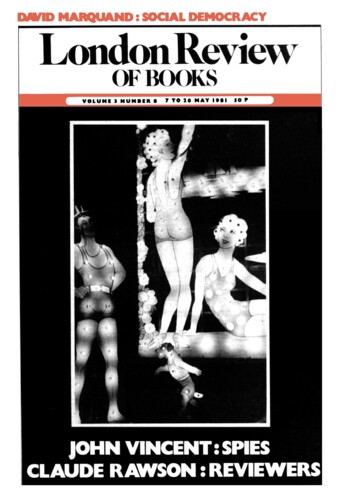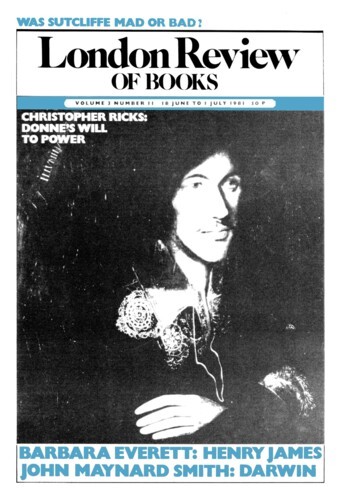Lost Empire
D.J. Enright, 16 October 1980
By the time I had reached the end of this novel I had accumulated enough notes to make a modest book: a fact that bears witness to the sheer density of the writing, as well as the seriousness of its concern. It is unwise to skim. Only in retrospect can you identify what could safely have been skipped as supererogatory or duplicate. Since complaints will follow – grave matters incur grave complaint – let me say at the outset that Earthly Powers carries greater intellectual substance, more power and grim humour, more knowledge, than ten average novels put together.
